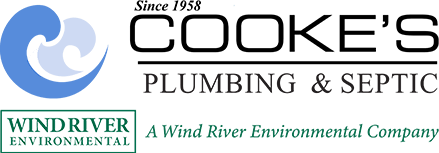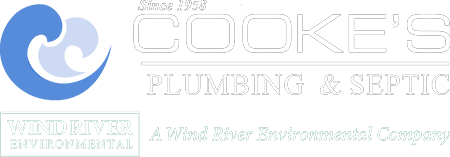Want to Learn About Your Septic System?
If you recently purchased a home or business in the Treasure Coast area, there’s is a good chance that the waste system in place is a septic system. Many homes in Stuart – Fort Pierce were built in the 50’s, 60’s, 70’s and 80’s and there are many newer homes that use septic systems as well.
Septic systems are underground wastewater treatment systems that are often used in rural areas where there are no centralized sewer systems available. If you have no knowledge of septic systems, it is a good idea that you understand how they work and the maintenance necessary. If you don’t, you risk a messy and expensive backup either in your yard or in your home. Below are the answers to a few common questions that can help you understand your septic system and the maintenance that it requires.
What Is a Drain Field?
A septic drain field is also known as a leach field. The drain field is where the water goes that flows from the septic tank. It consists of perforated pipes that are buried in trenches that are filled with gravel. The water is absorbed and filtered slowly by the ground in the drain field. If the drain field is overloaded with too much liquid, it can result in a flood. This will cause the sewage to flow to the ground surface, causing a flood in the yard. In more serious cases, it can cause a backup in your sinks and toilets.
Is There Anything That I Cannot Flush Down the Toilet?
If you have a septic system, you should only flush things that are biodegradable. Anything that won’t break up in the septic tank can be dangerous to the entire system. There are certain things that you should never flush down the toilet.
• Feminine products that clearly state that they cannot be flushed.
• Cooking grease should never be dumped down the drain or flushed down the toilet as it can result in clogs in the pipes.
• Most baby wipes and wet wipes are not biodegradable. When they are flushed, they won’t break down. This can cause clogs and backups in the sewers. There are some wipes that are flushable. Before you flush these products, read the packaging carefully.
• Dental floss is not biodegradable. After you floss your teeth, the used floss should go in the trash.
• Cotton balls and Q-Tips should never be flushed because they won’t break down. Instead, they will clump together causing a blockage in the pipes.
• Diapers should never be flushed down the toilet. Just one diaper can get caught in the U-bend of the pipe, causing a serious backup.
• Paper towels should never be flushed. This is because they won’t dissolve the way that toilet paper does. Instead, they will clump together causing serious problems in your pipes.
Should I Add Bacteria Products to My System?
There are several bacteria products on the market and (We recommend ‘Cooke’s Septic Bacteria Additive’). These products contain billions of natural bacteria and enzymes that can break down household waste. You would flush the product down the toilet once a month. These products are great because they are inexpensive, they start working within a few hours, and they can protect the health and efficiency of your septic system.
How Often Should I Have My Septic Tank Flushed?
It is necessary to have your septic tank pumped regularly to keep solids from escaping into the drain fields. It will also prevent your septic tank from overflowing. The solid materials will settle at the bottom of the tank. This will form a layer of sludge. Lightweight materials will float to the top. To prevent a septic tank overflow, you should have your tank pumped every two to four years. We recommend having a licensed professional technician like those here at Cooke’s perform the pumping procedure.
What Else Do I Need to Do to Maintain My Septic System
Other than having your septic tank pumped and adding bacteria products, there are a few things that you need to know to keep your septic tank safe. First, you should never build on or around the tank. When it is time to have your tank pumped, the truck will need to get to the tank. If you build too close, the truck won’t have the room to get in. Also, anything heavy will cause structural damage to the tank. You should only plant grass around the septic tank. If you plant trees, shrubs, or bushes near the tank, the roots can damage the system. If you need maintenance help, you should call a licensed technician with experience and proper equipment.
Not sure if everything is working properly? You may want to get your system inspected.
What Are the Signs That My Tank Needs to Be Pumped Or That My System Is Failing?
It is important that you’re able to recognize the warning signs that your septic tank needs attention. The warning signs include:
• Sewage odors in or around the home
• Toilets and sinks that drain slowly
• Lush, green grass over the drain field
• Sewage that surfaces over the drain field. This often occurs after a storm.
• Sewage backups in the home
The best way to protect your home, business and septic system in your Treasure Coast home is to understand how your septic tank works and to know how to care for and maintain it. If you need help maintaining, fixing or installing your system, quick…call Cooke’s – the septic system experts – serving the Stuart, Port St. Lucie, Fort Pierce area since the 1950’s!

